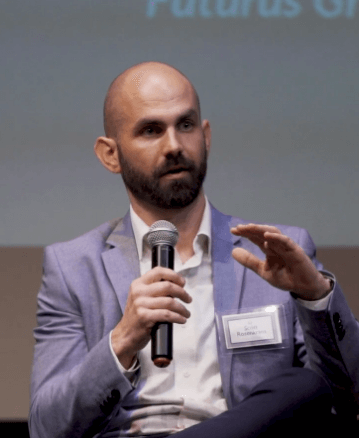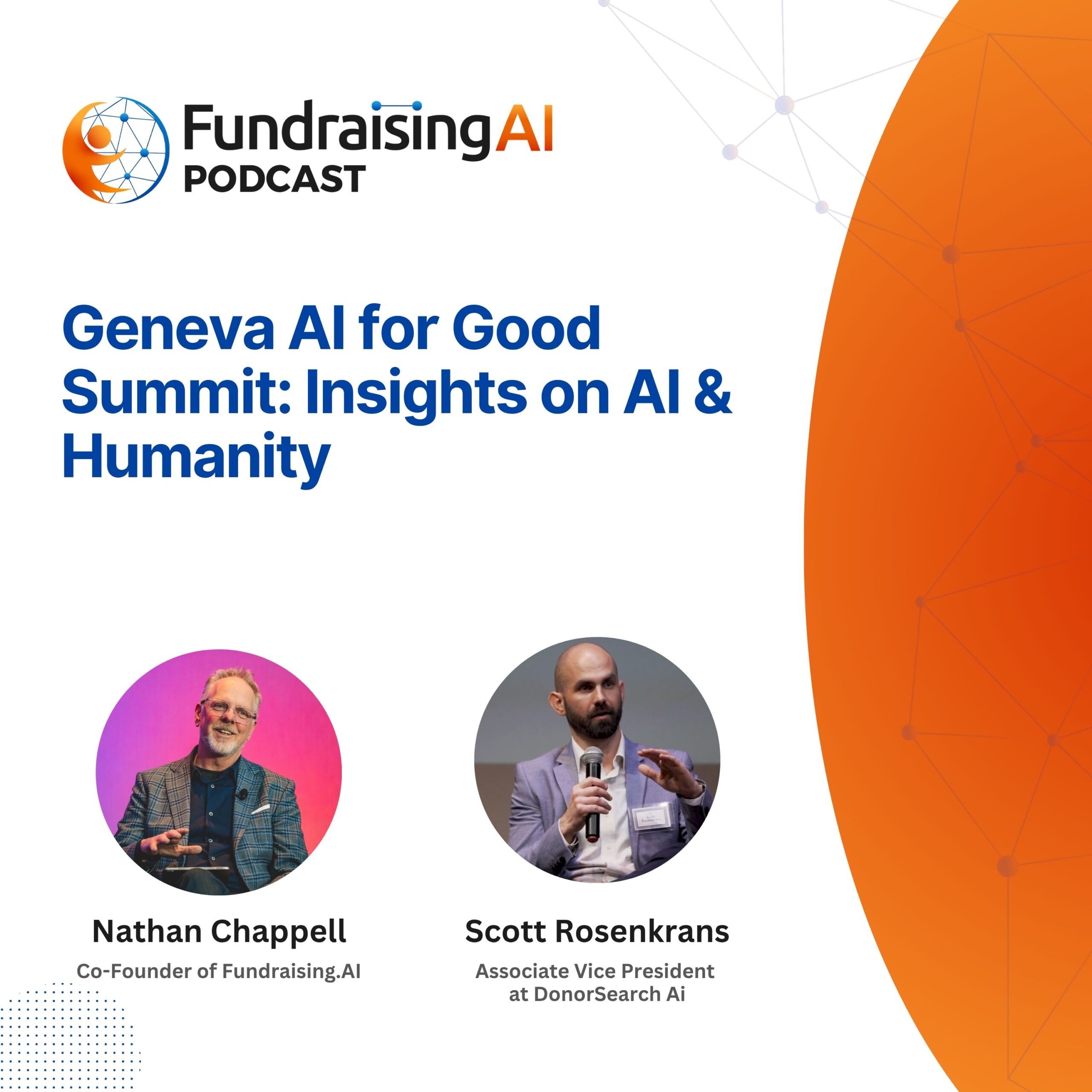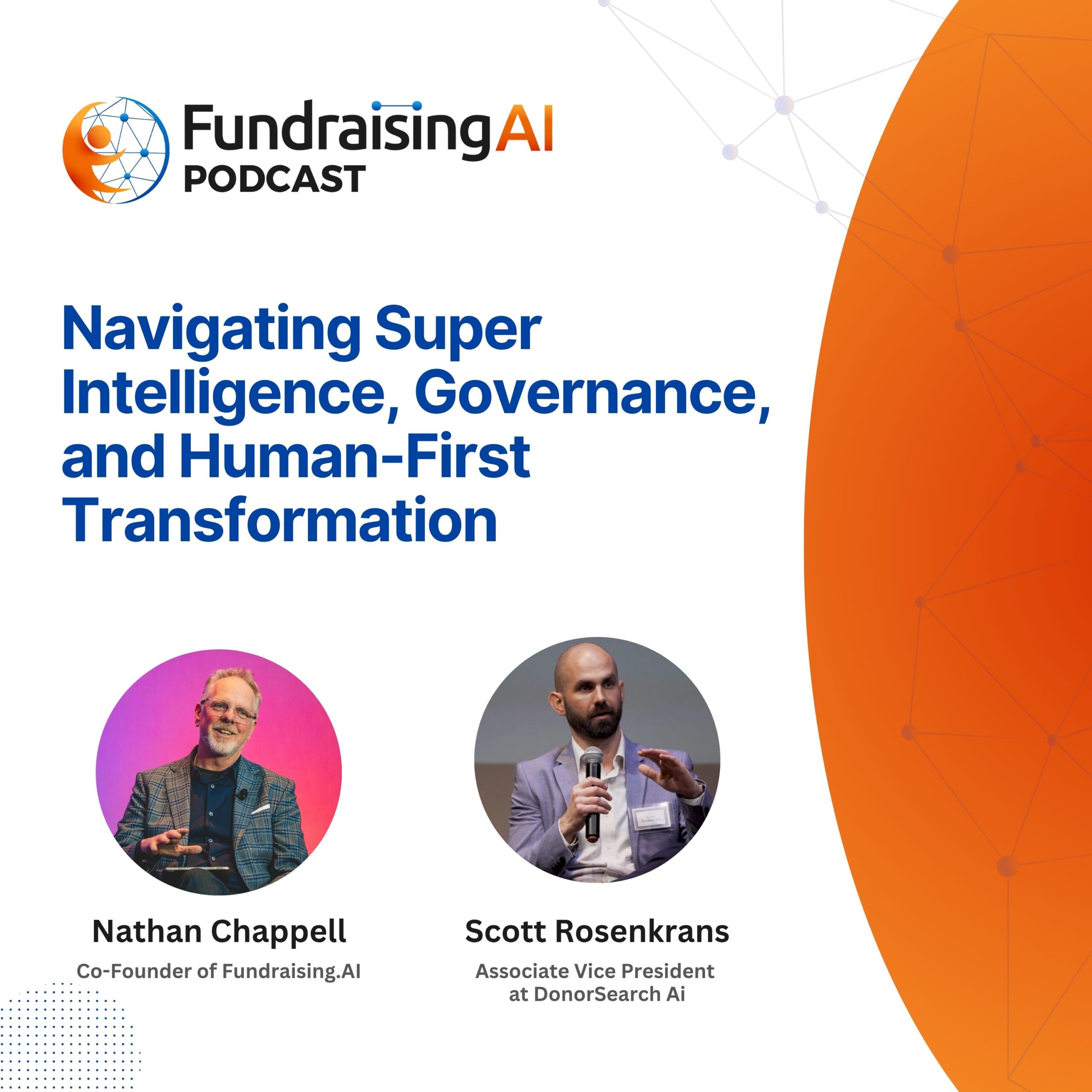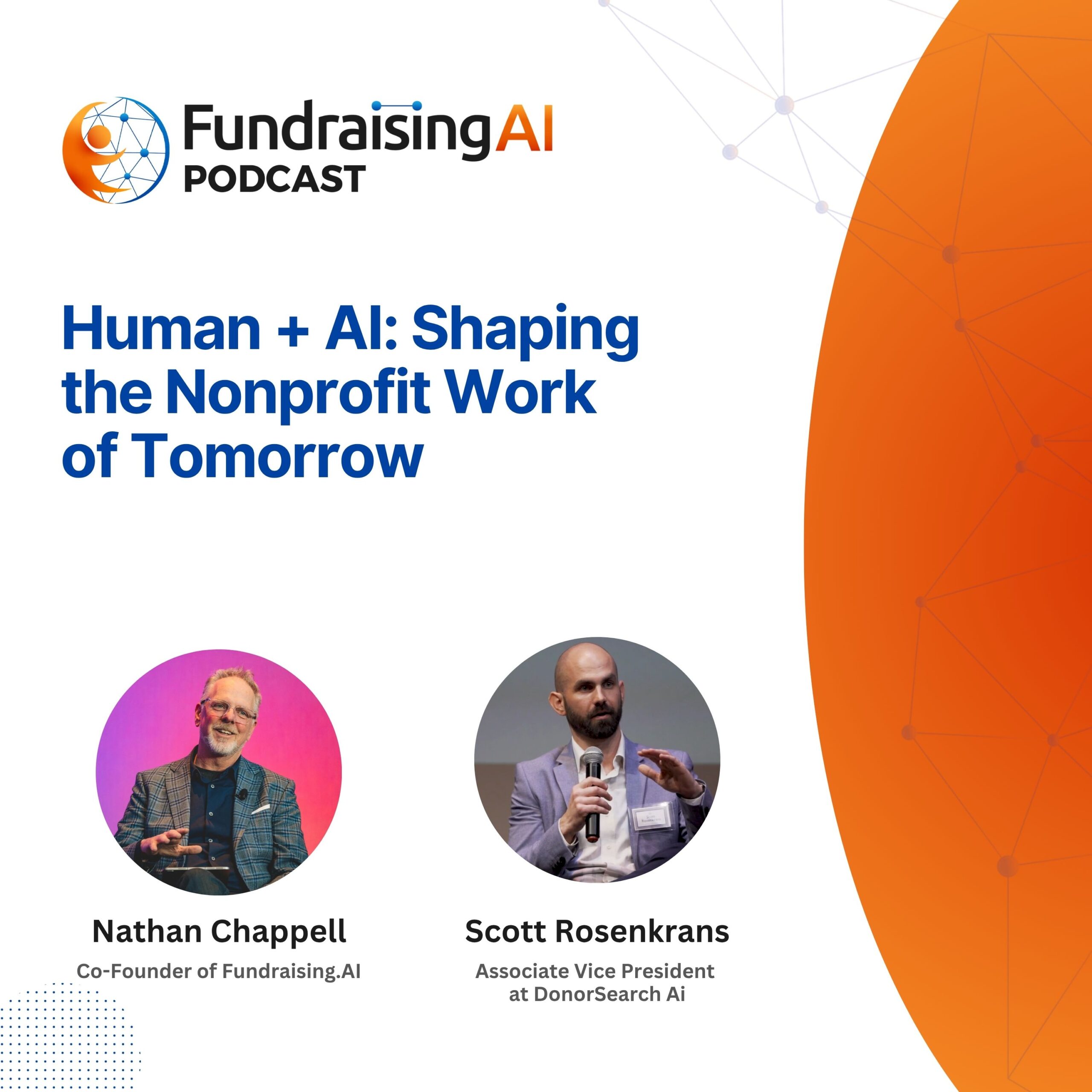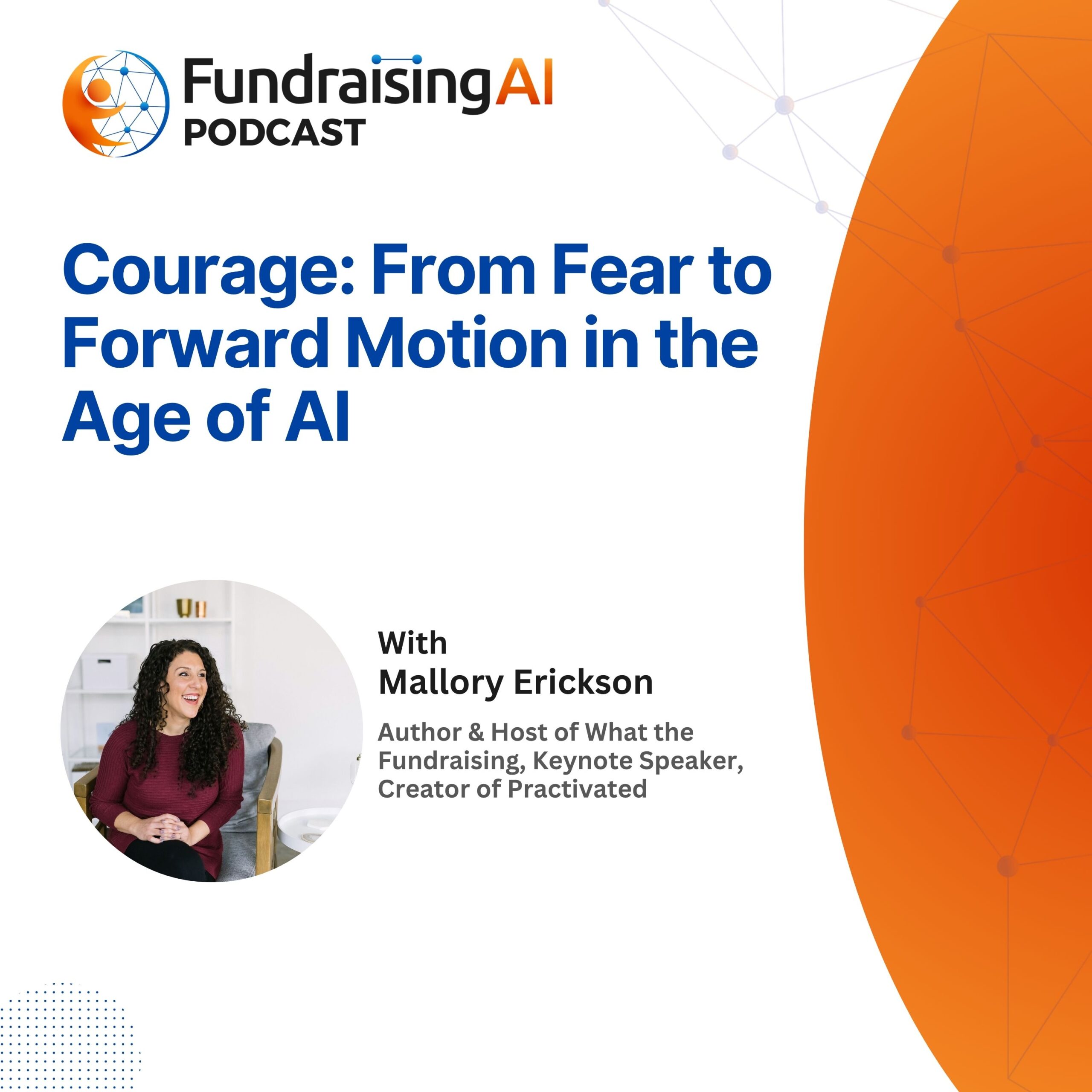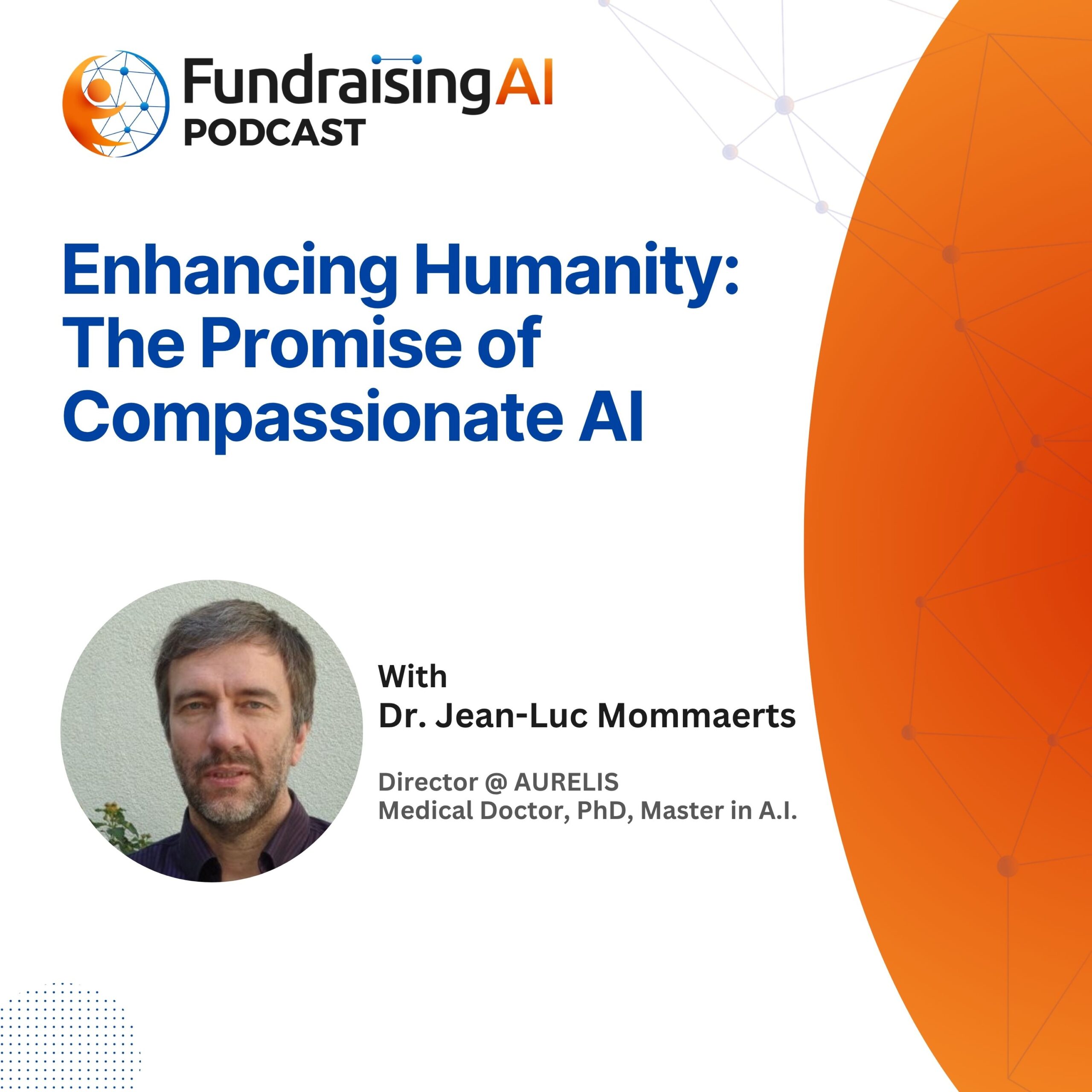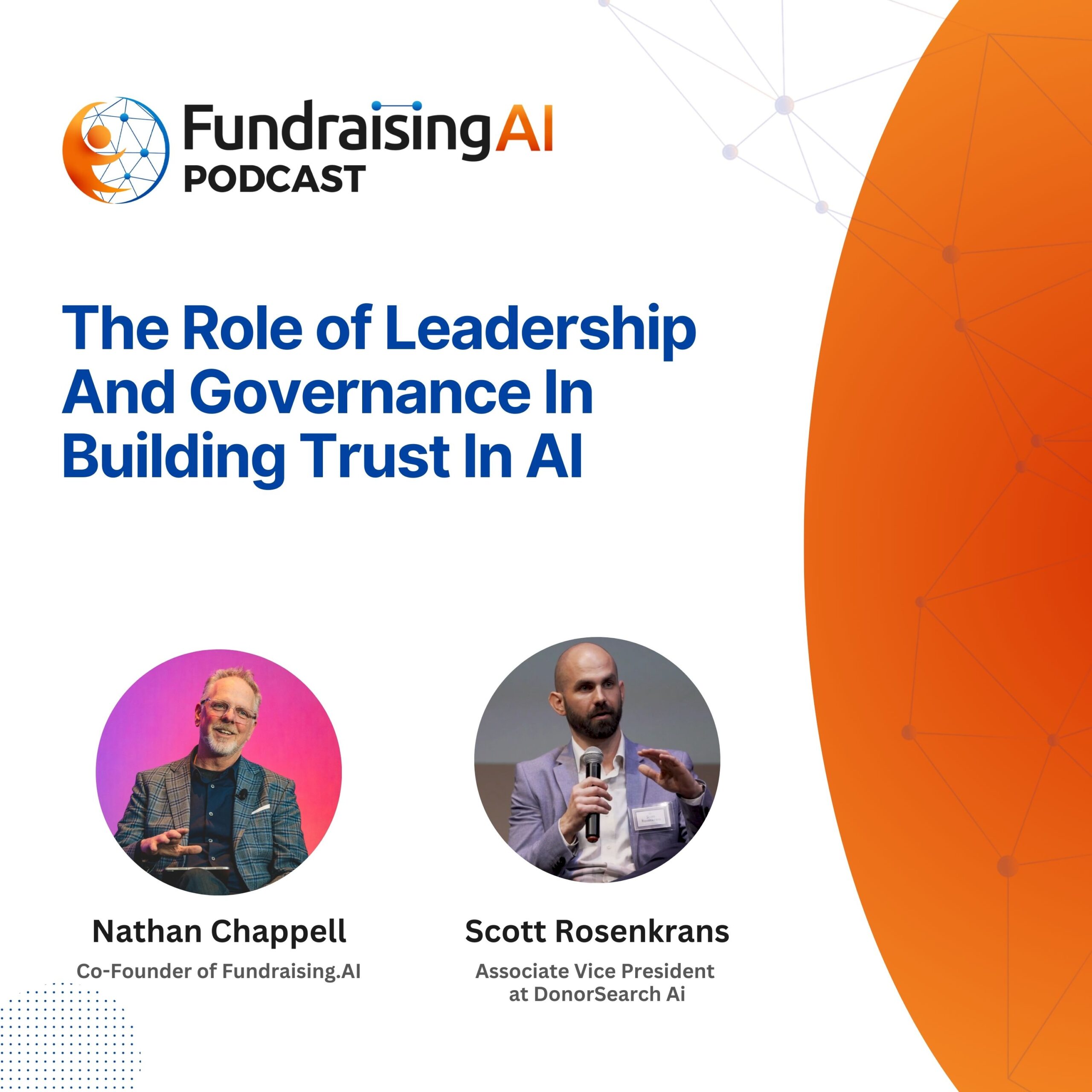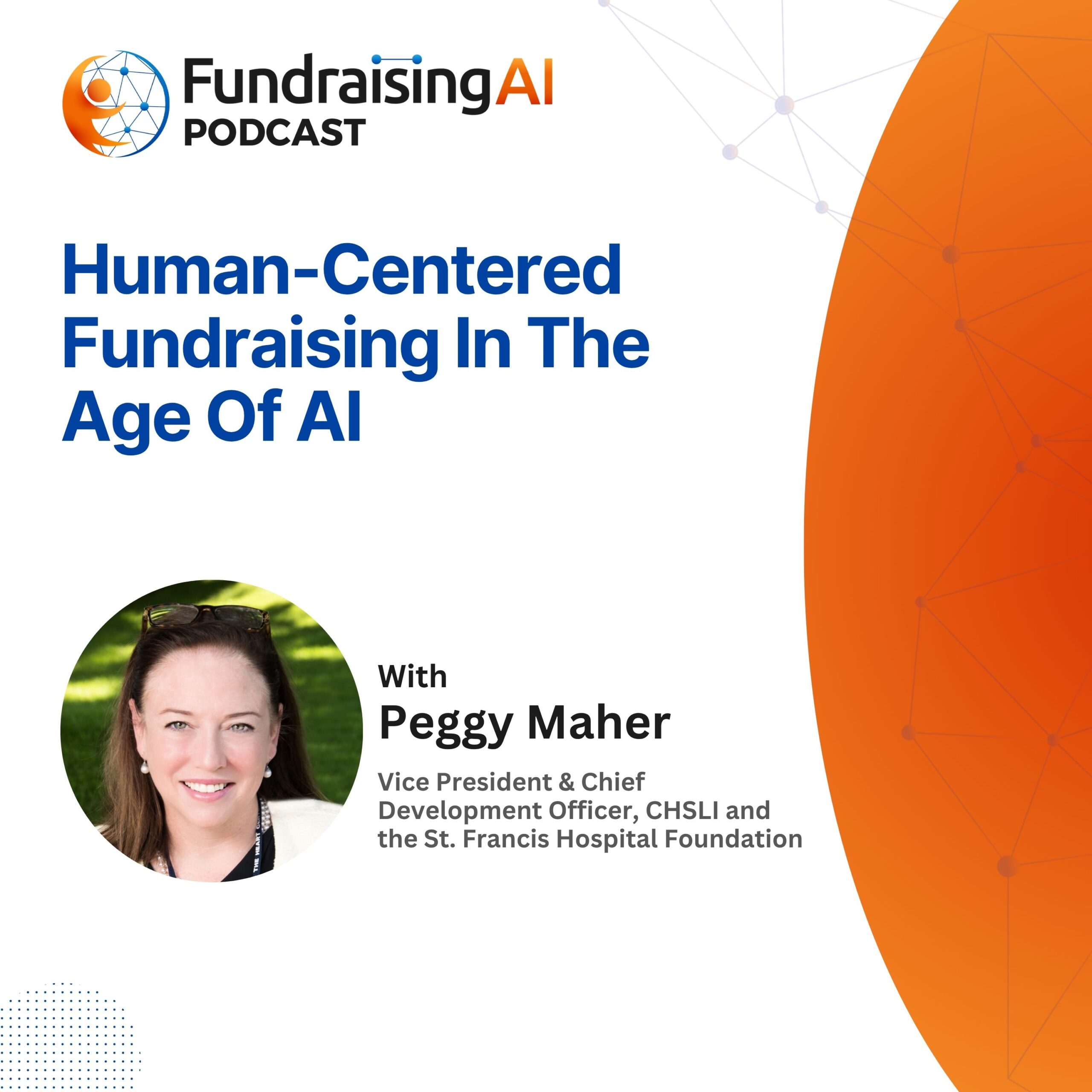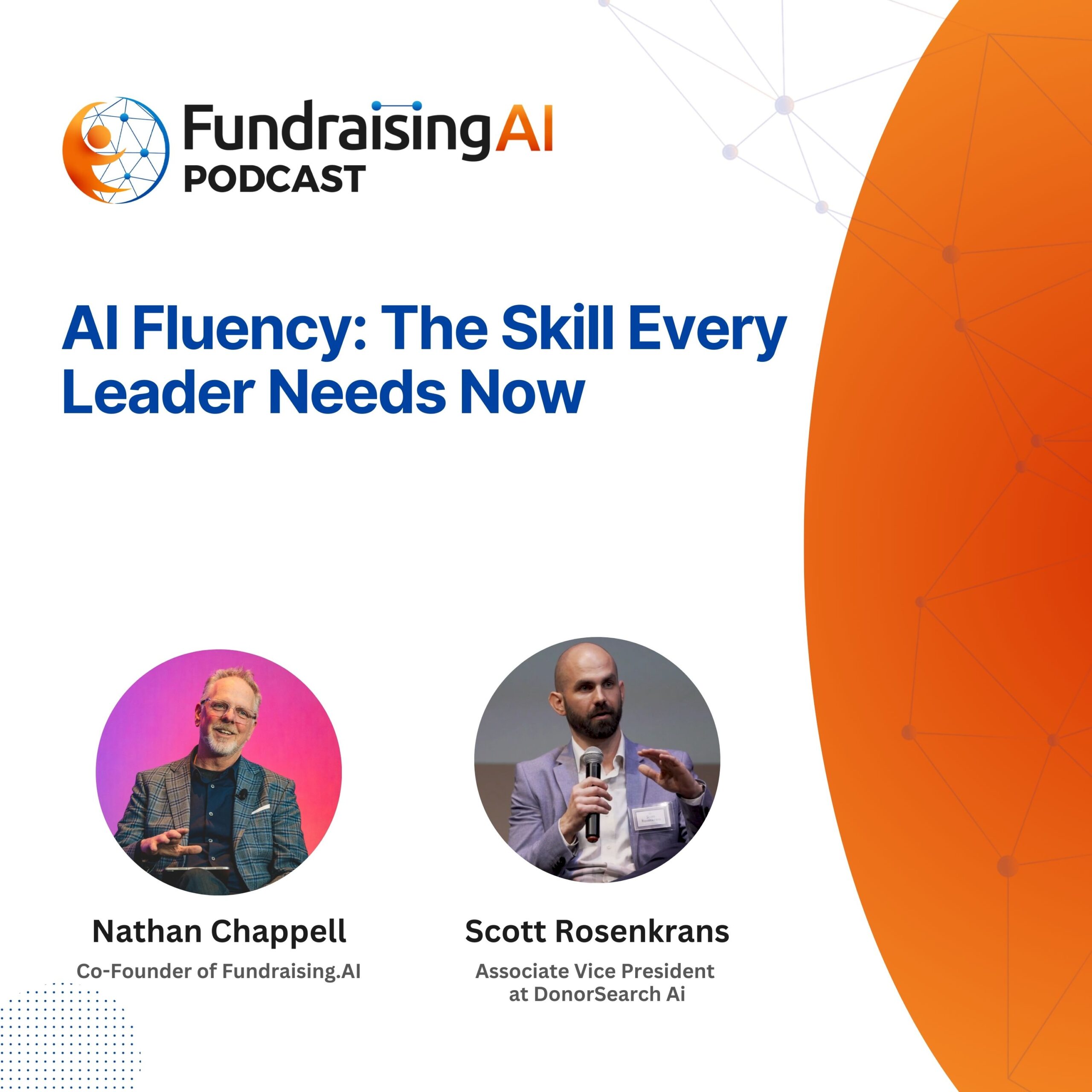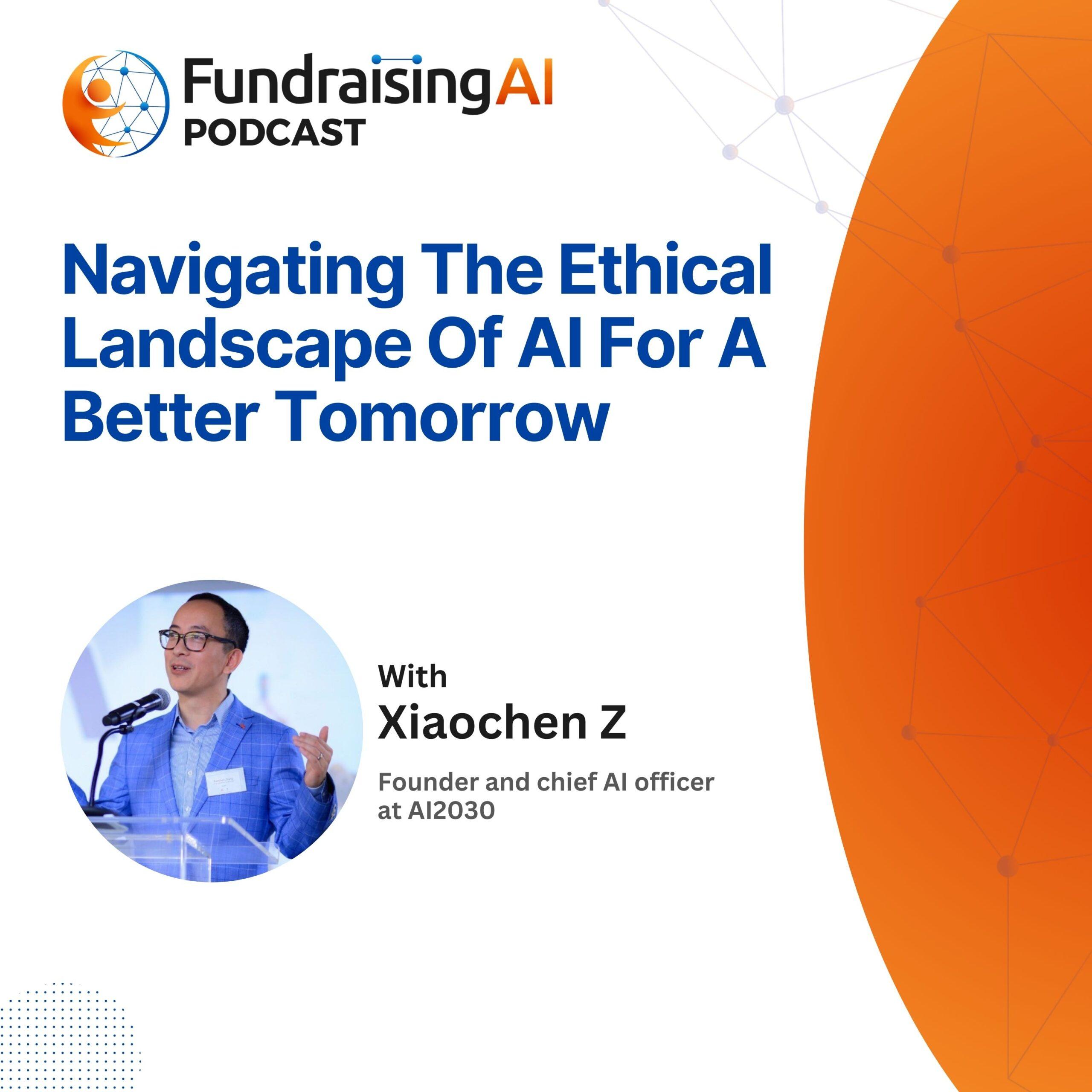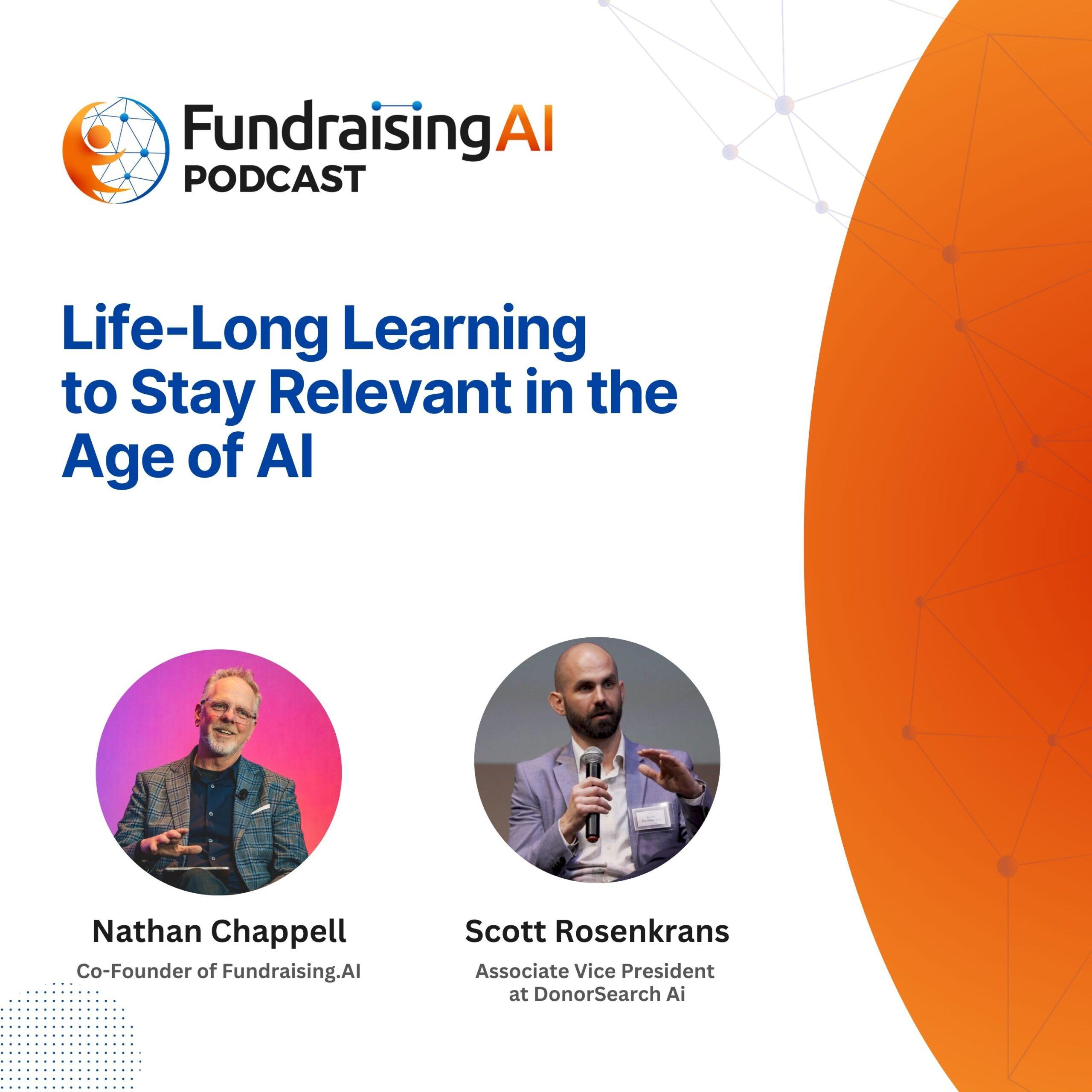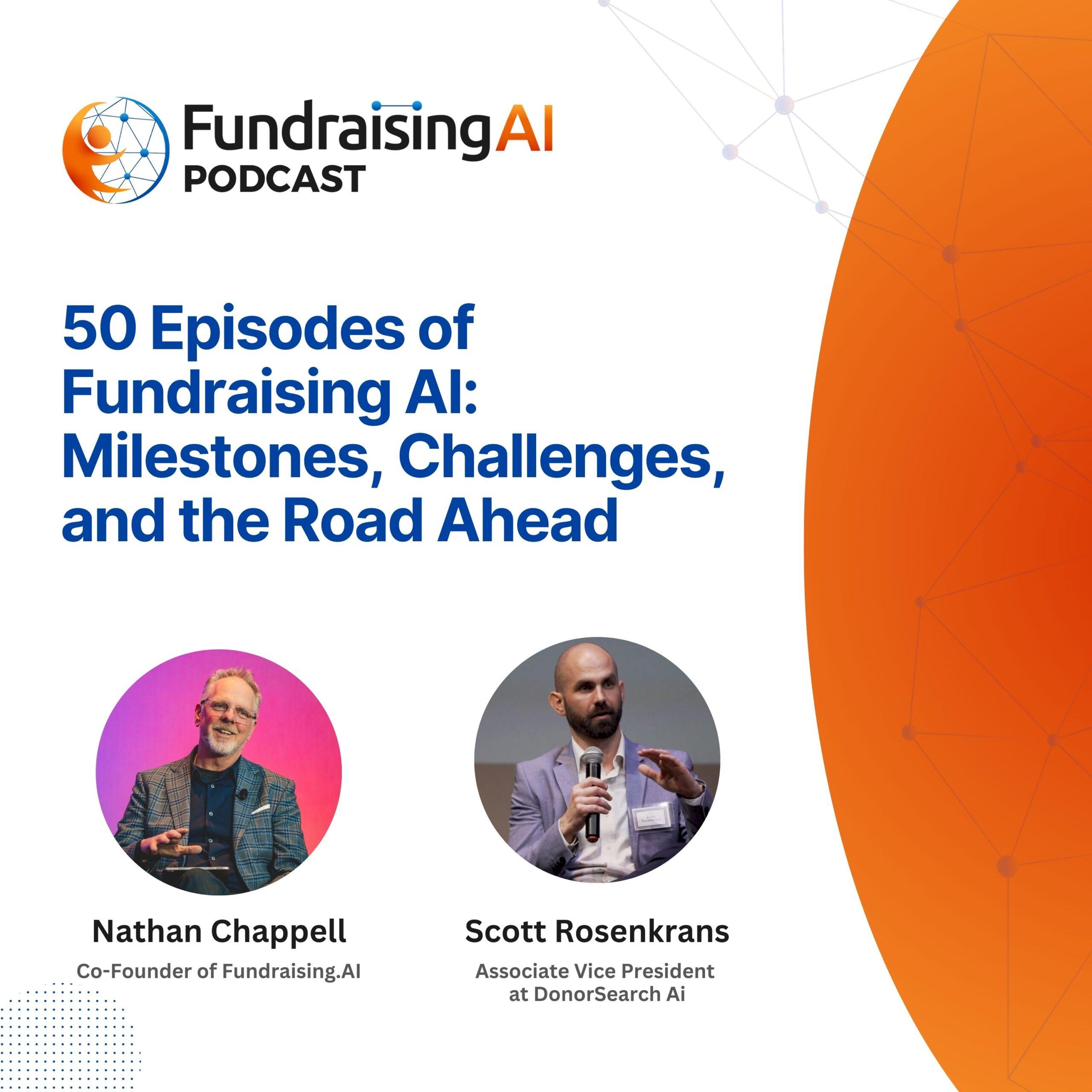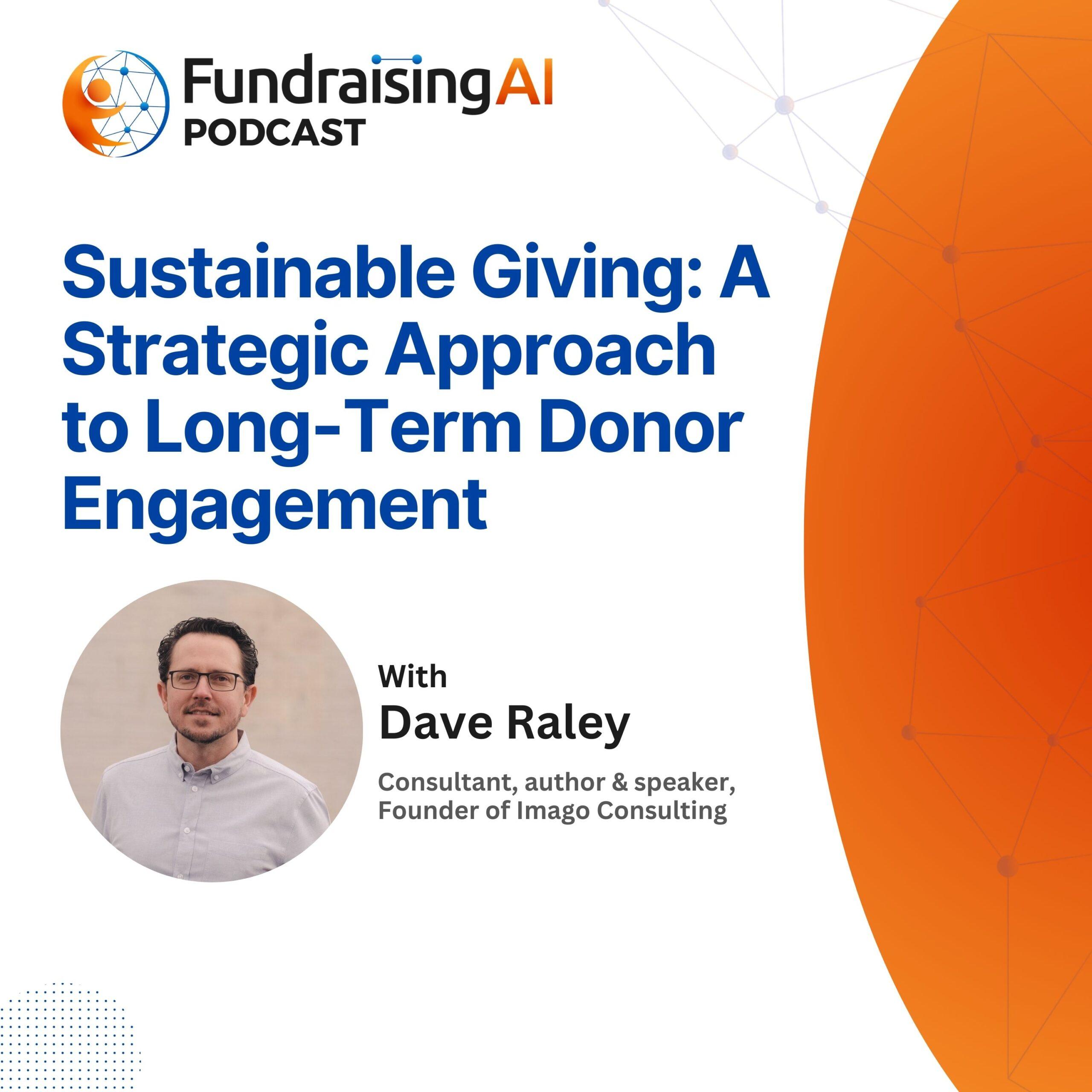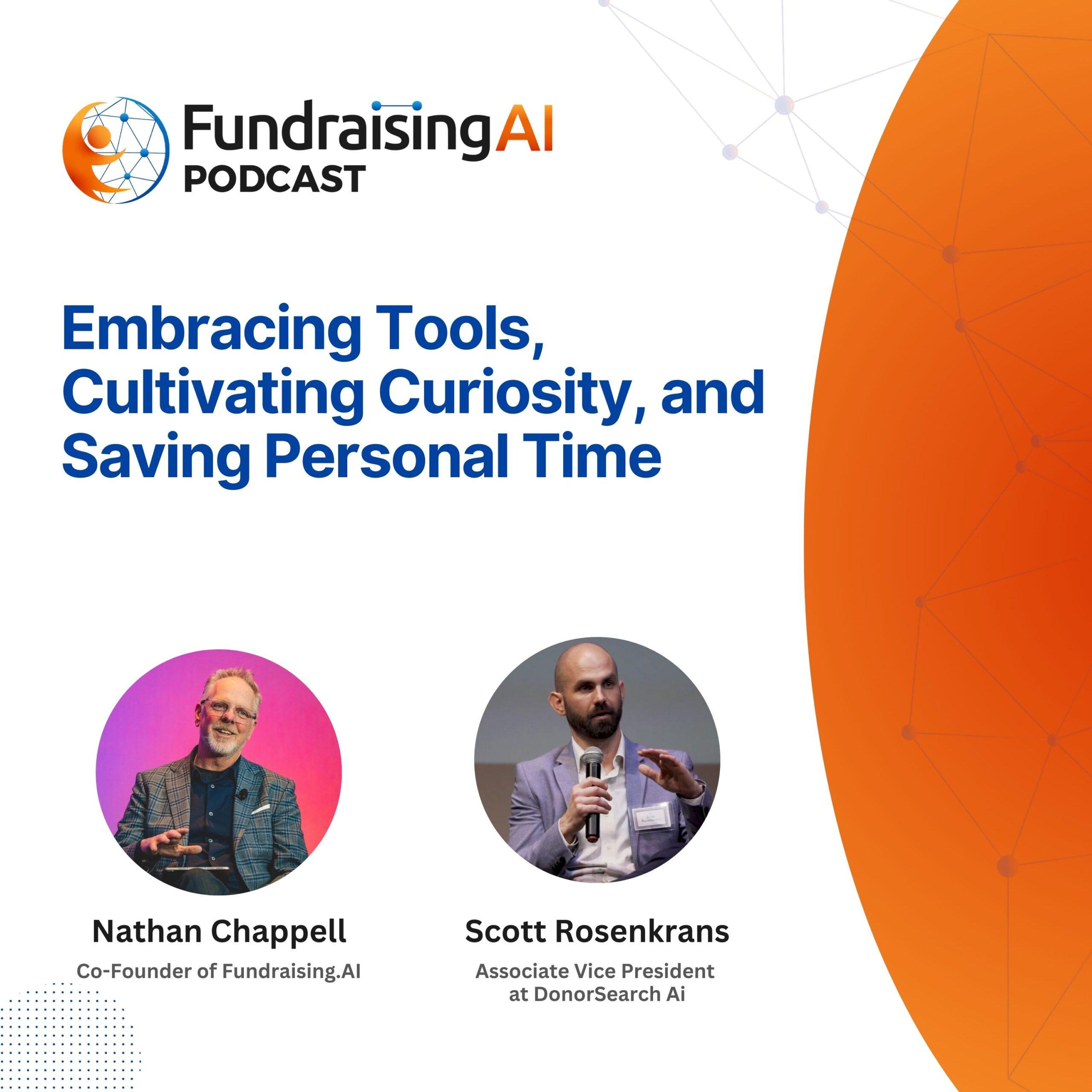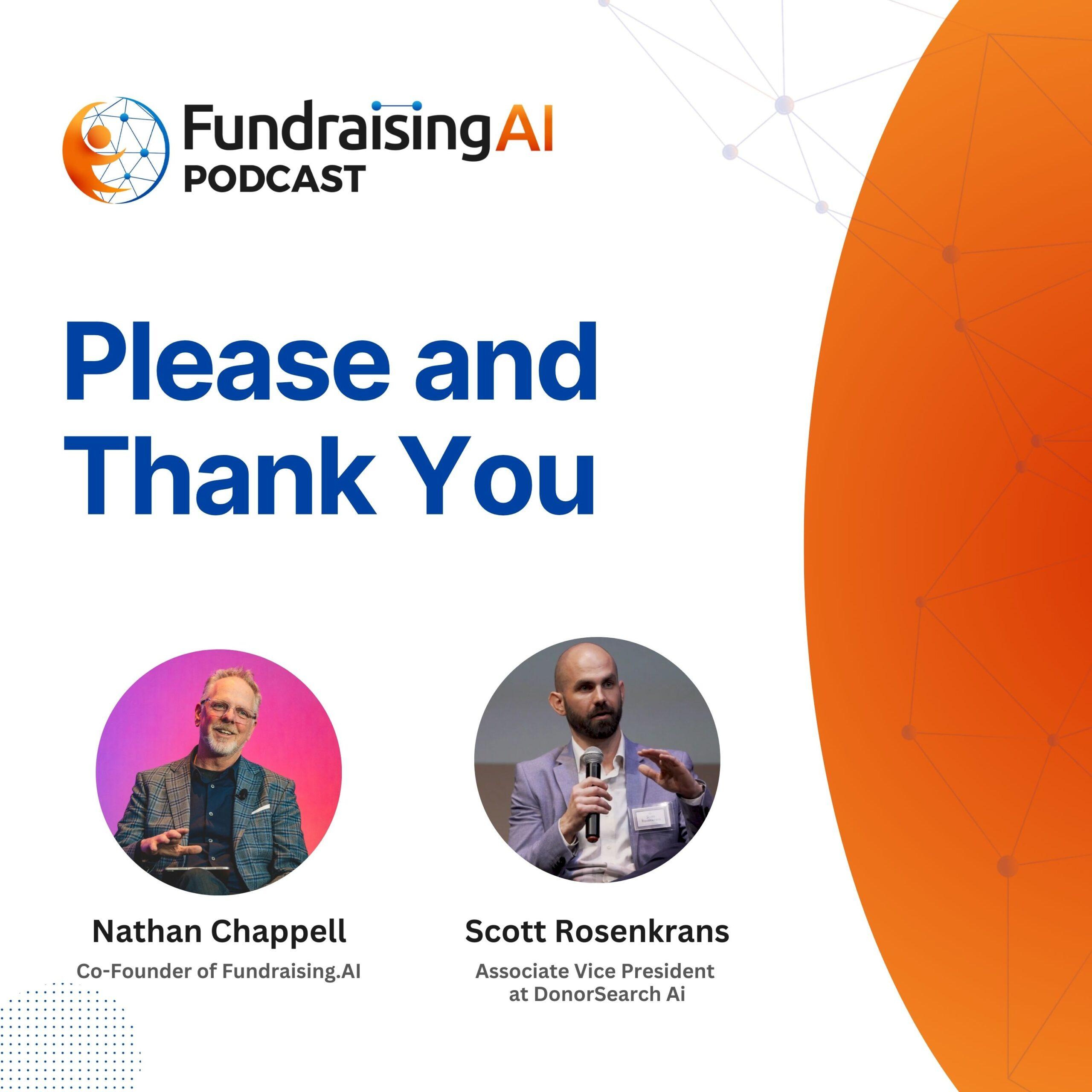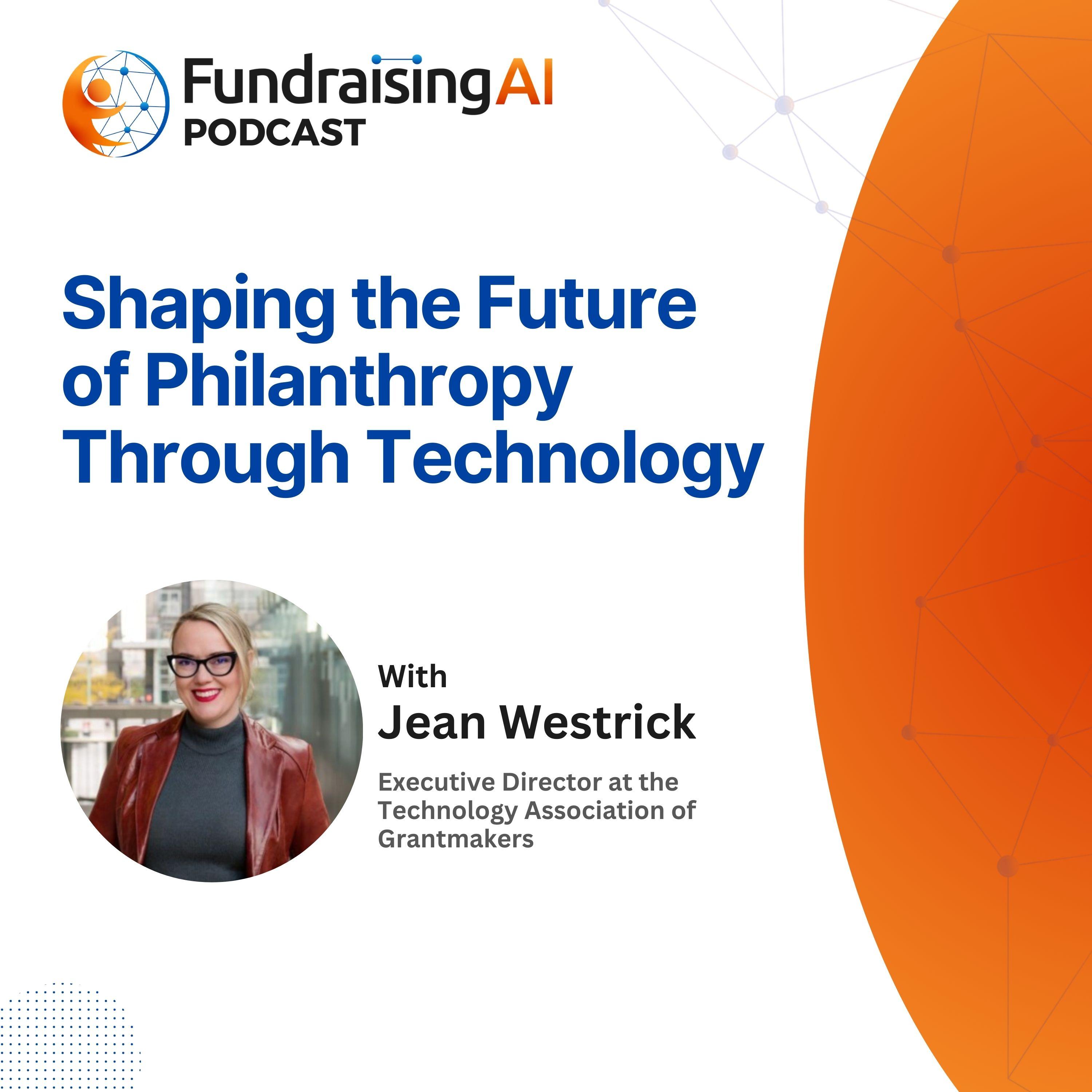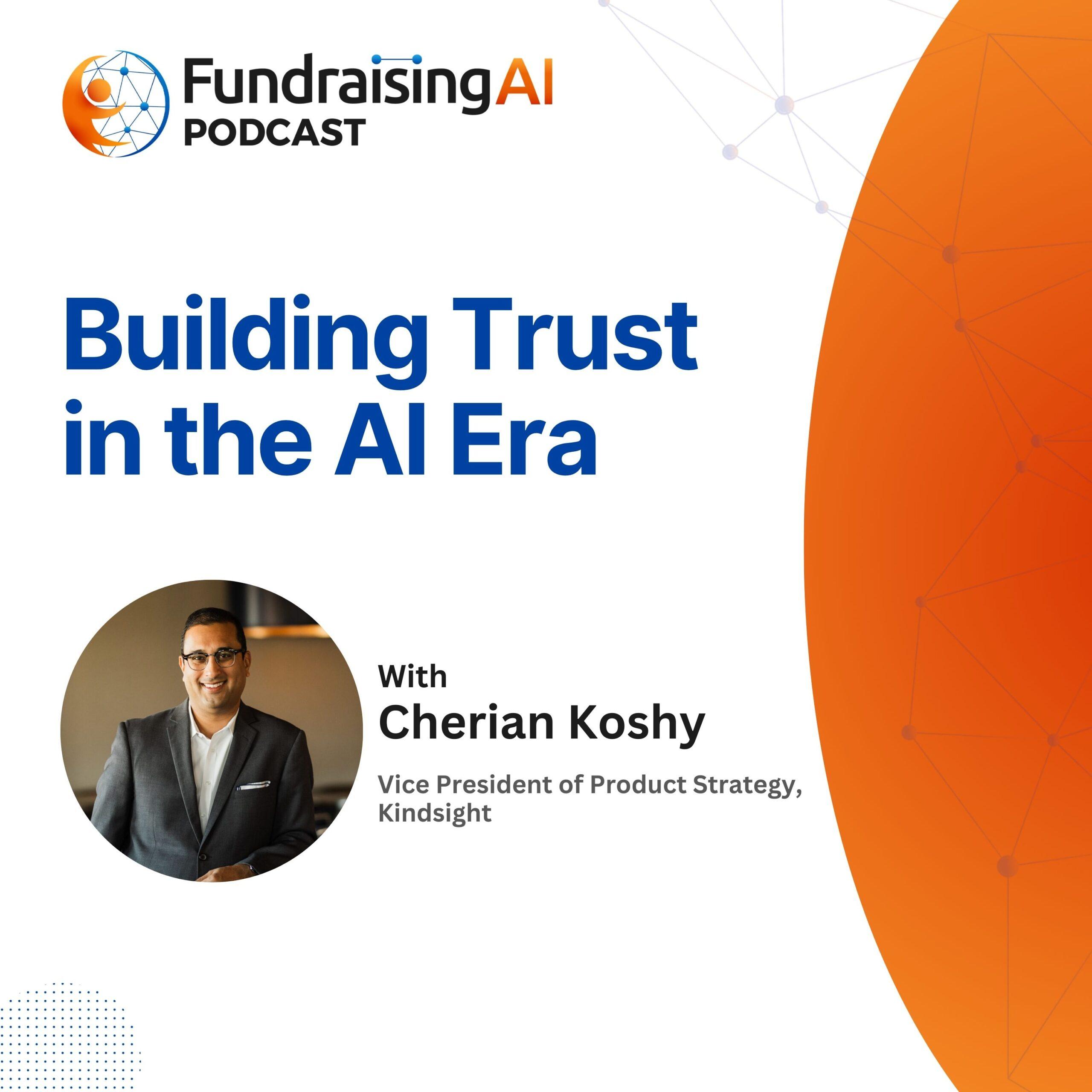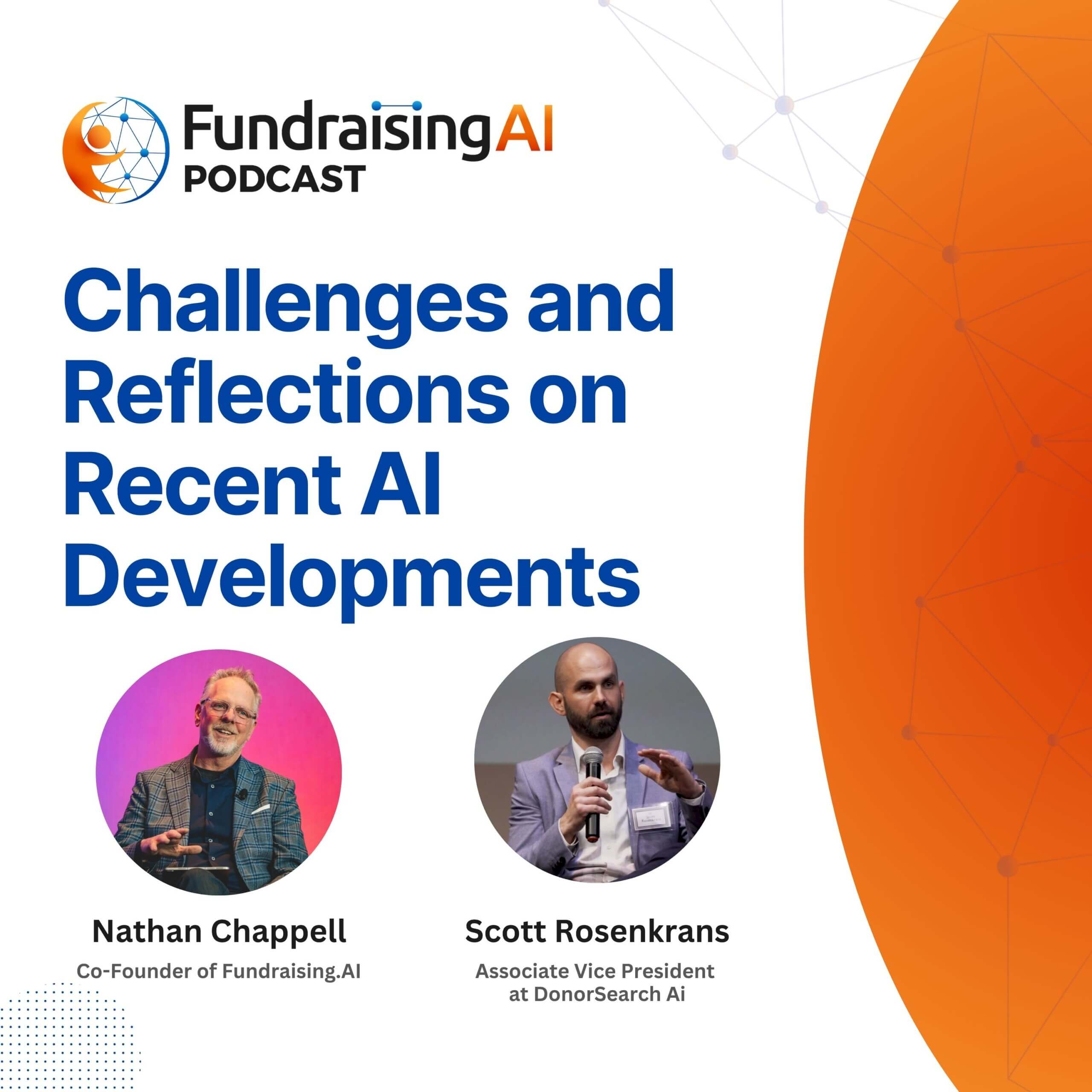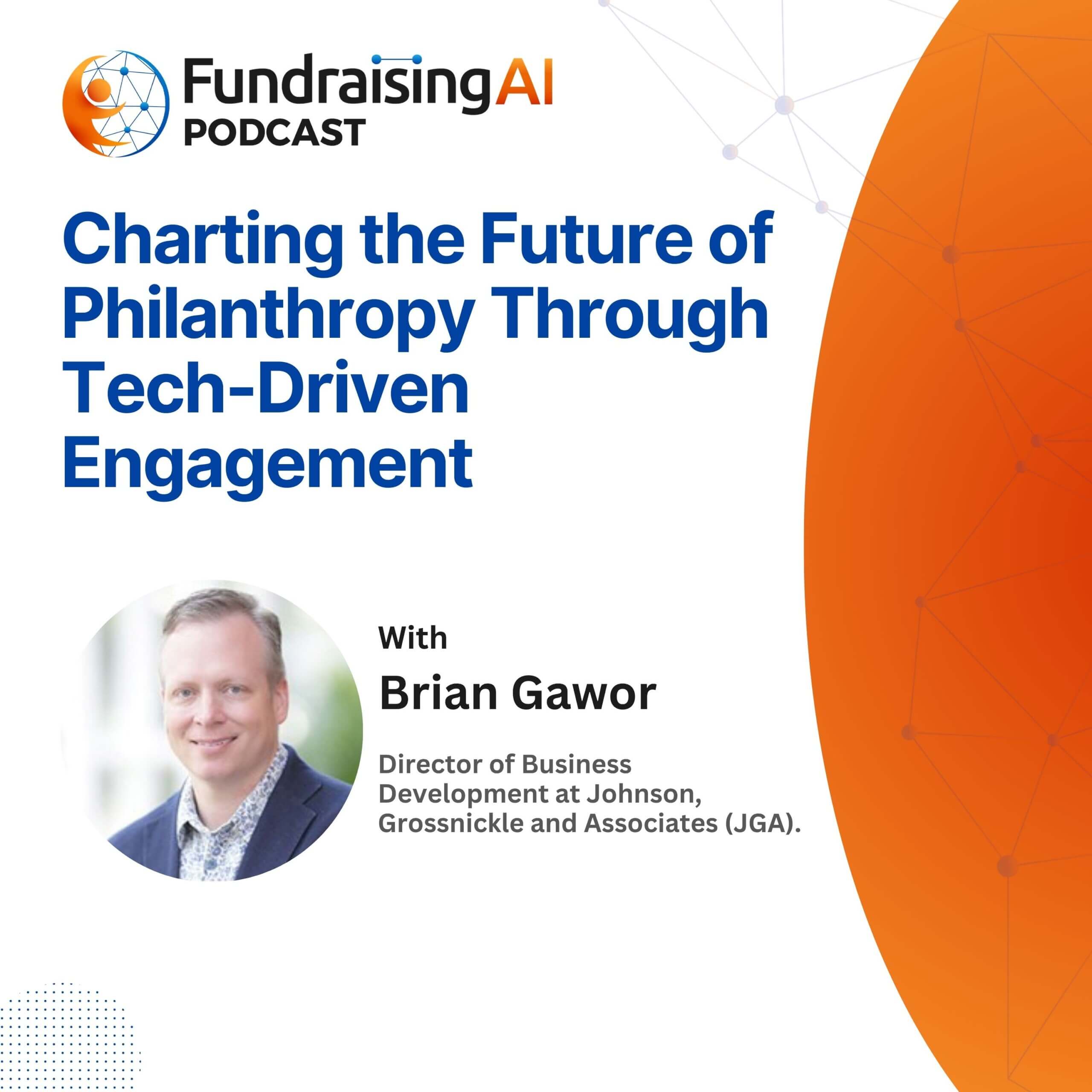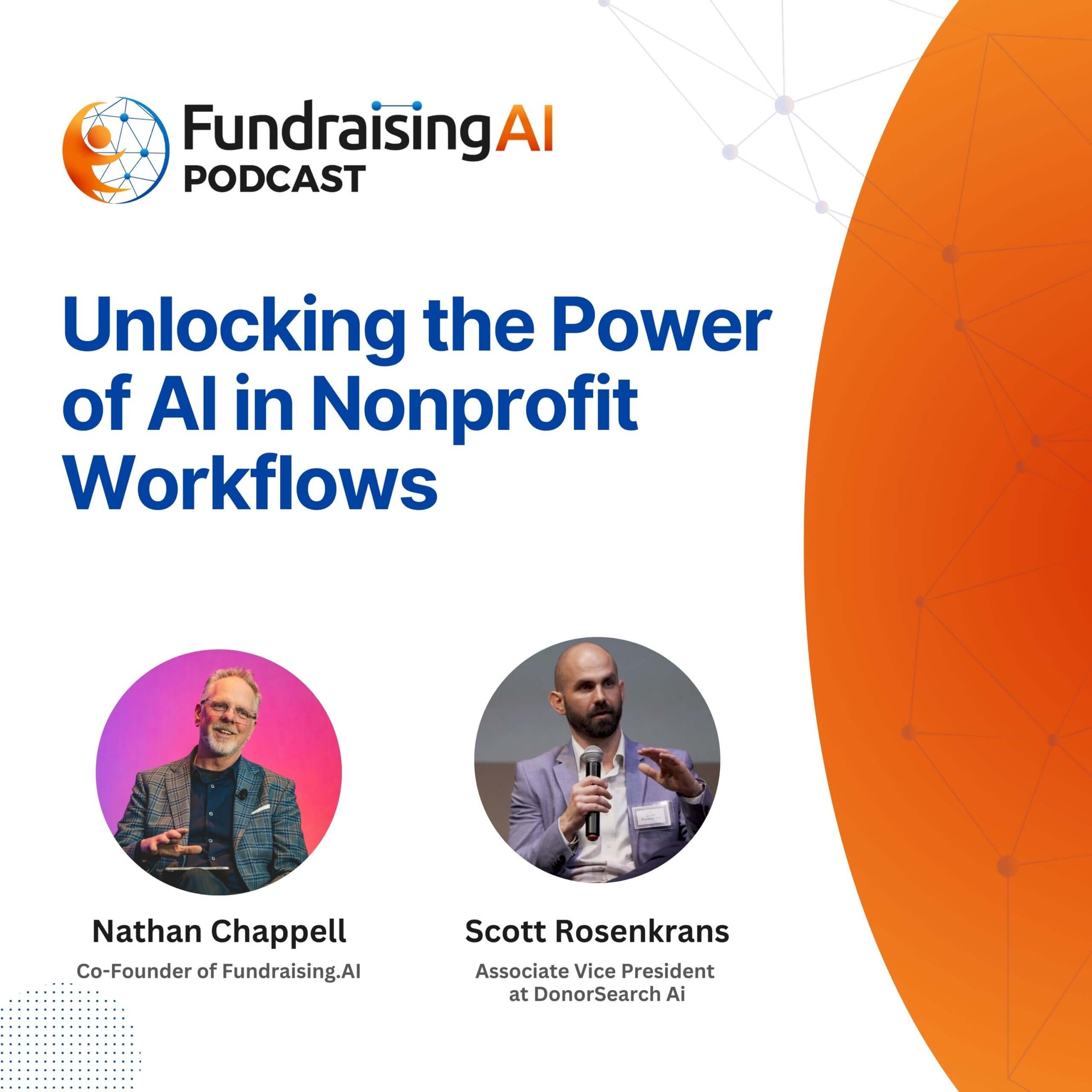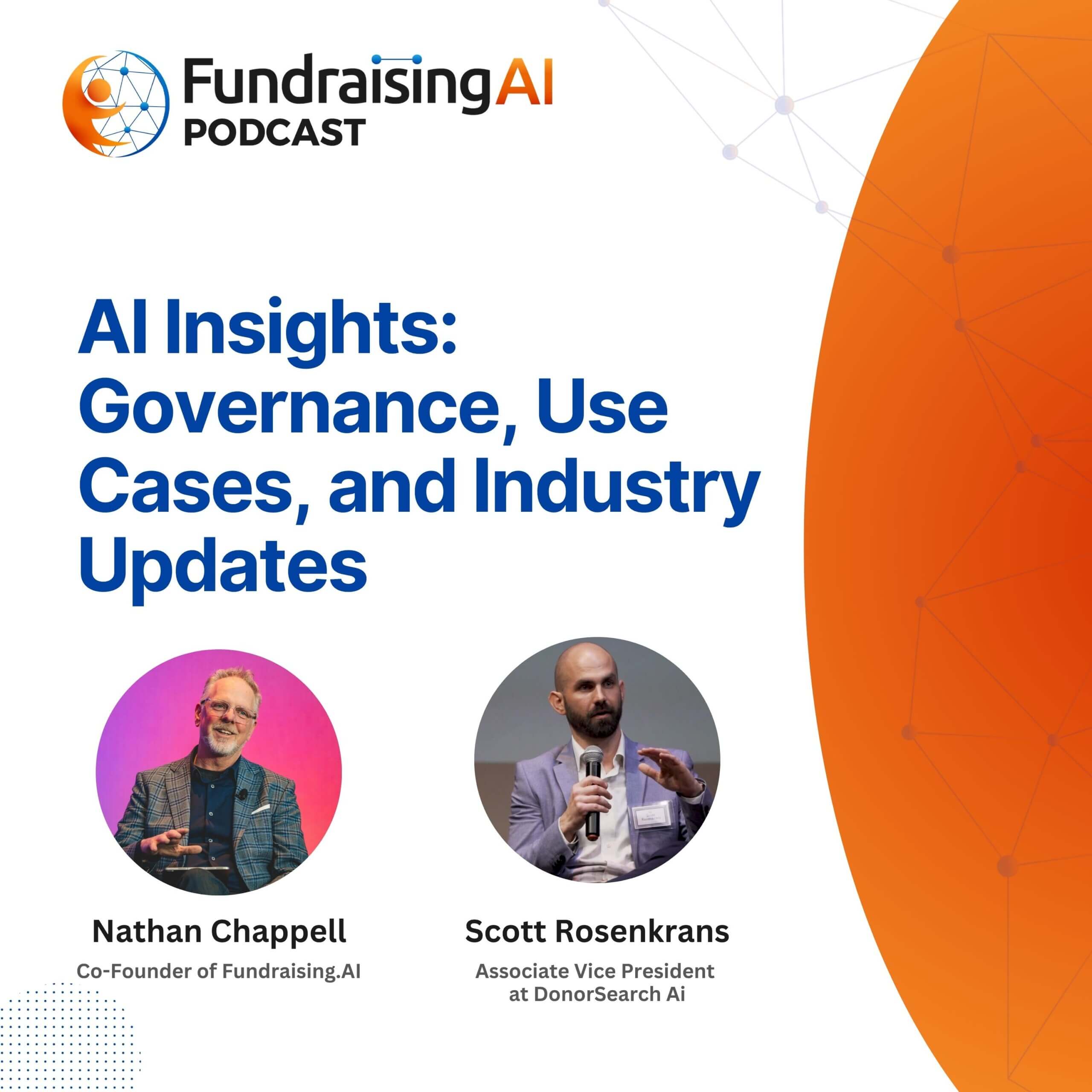Fundraising.AI
Episode 62
Episode 62 - Geneva AI for Good Summit: Insights on AI & Humanity
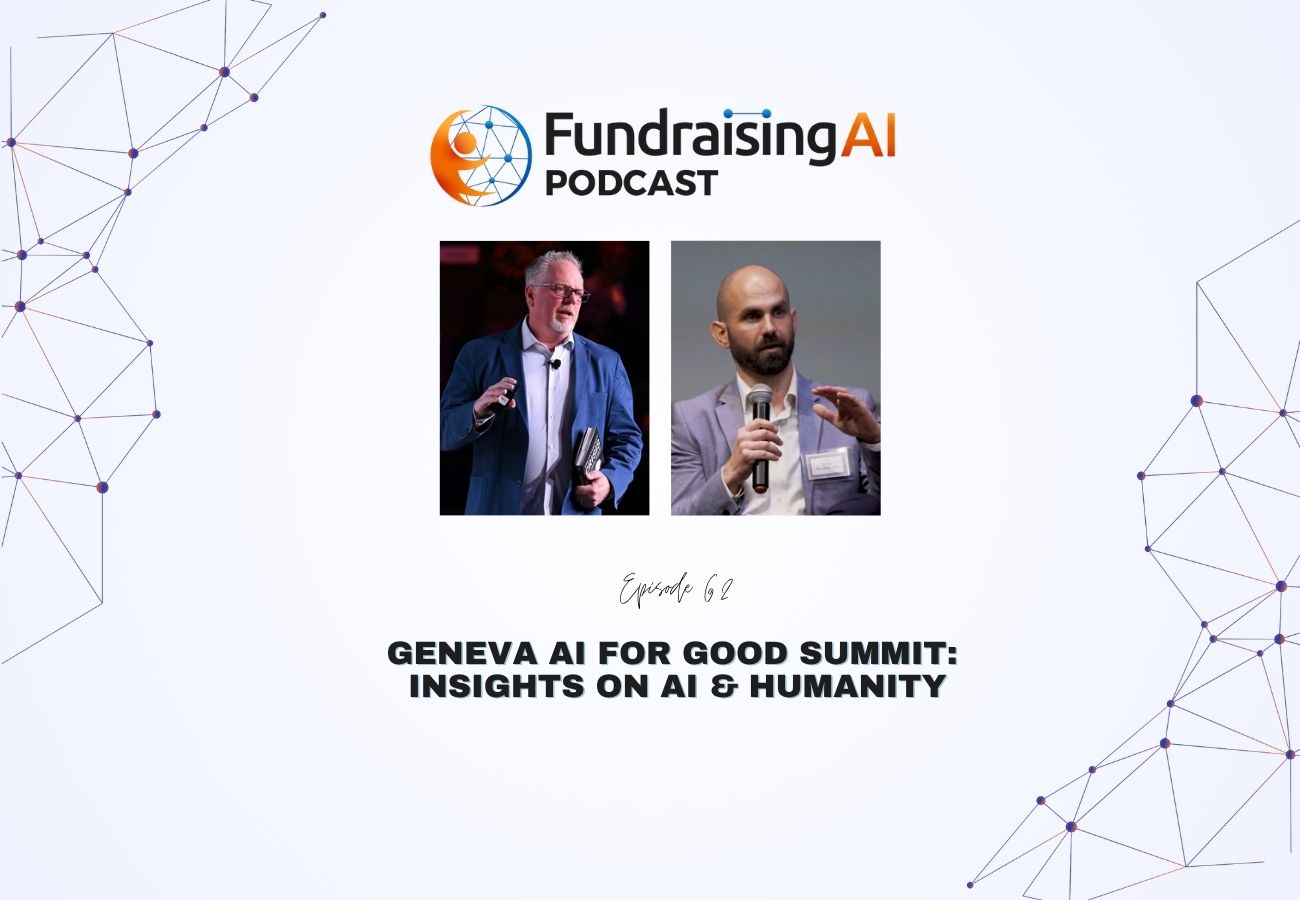
THIS EPISODE IS SPONSORED BY
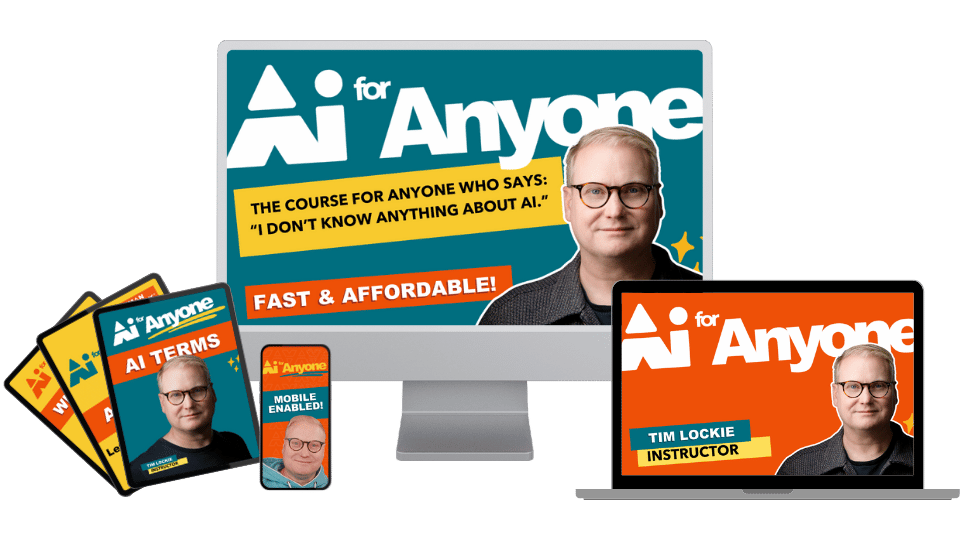
WATCH ON YOUTUBE

Listen To The Episode
OVERVIEW
Today’s conversation from the AI for Good Summit in Geneva, Nathan and Scott explore the evolving role of AI in shaping a better world. The summit, held under the United Nations banner and inspired by Neil Sahota, marks its 10th anniversary by focusing on how AI can accelerate the achievement of the Sustainable Development Goals (SDGs). The discussion encompasses diverse topics, ranging from quantum technology to AI-assisted robotics, but it’s the human impact that takes center stage.
Nathan and Scott reflect on the cultural nuances of AI adoption in the US, UK, and Mongolia, highlighting how urgency, regulation, and societal mindset influence progress. They examine the growing importance of AI governance and trust, particularly in the nonprofit sector, where AI is viewed not as a replacement for fundraisers but as a tool to strengthen relationships and enhance decision-making.
The episode encourages nonprofits to adopt internal AI policies, ask better questions of their vendors, and prioritize empathy and human connection in AI implementation. With practical tips and personal routines shared, this conversation reinforces a critical message: successful AI adoption starts with people, not just tech. As AI transforms industries, the focus must remain on curiosity, values, and long-term impact.


EPISODE HIGHLIGHTS
- [0:07] AI for Good Summit Overview
- [03:09] Impact of AI on Workforce and Governance
- [06:16] Cultural Differences in AI Adoption
- [10:17] AI's Role in the Nonprofit Sector
- [22:07] Imagination, Boundaries, and Thriving with AI
- [27:07] AI Governance and Trust
- [33:29] Practical Tips for AI Adoption




TIPS AND TOOLS TO IMPLEMENT TODAY
- Review where AI is currently used in your organization and identify any gaps.
- Inquire how their AI tools are trained and governed.
- Define clear limits for AI use to protect trust and maintain transparency.
- Use AI to strengthen, not replace, human relationships.
- Utilize AI to foster long-term relationships with donors and customers.
- Engage with summits or forums to stay ahead and inspired.
ADDITIONAL RESOURCES
- Allie K MIller's Linkedin Learning AI Course
- ChatGPT4 accurately predicts human behavior in social experiments at 85%, across genders, races, and political affiliations.
- AI Adoption Is Driving Real Top - And Bottom-Line Impact For Enterprises (Gartner)
- Gen AI is hitting a trough of disillusionment (Gartner Hype Cycle)
- A new AI Pendant created to combat loneliness
- AI-first organizations
- More departures at OpenAI
- OpenAI's GPT-5 is coming out soon. Here's what to expect.



FAVORITE QUOTES
- "Technology is the same in all three of those settings, but the culture and how we're looking at AI is very different." – Nathan Chappell
- "AI is not to replace the human to human, but to allow you to have more time for human to human." – Scott Rosenkrans
- "All the organizations we're seeing here at this conference are looking to move further ahead with AI internally." – Scott Rosenkrans
- "To figure out how to use AI for yourself, all you need is curiosity, critical thinking, and being able to come in and say, 'Well, let's start moving ahead with these steps. You don't need to know it all right now, but just something to start organizing people, ideas, conversations." – Scott Rosenkrans
- "The greatest limitation to accelerating, advancing, or being successful in AI is our imagination." – Nathan Chappell
- "AI adoption is stifled by the fact that people either aren't embracing technology because they don't understand it, or they're afraid of it." – Nathan Chappell
- "No matter what your role is, figure out how AI can take you several steps ahead—just to remain as relevant as you were in the past." – Nathan Chappell
MEET YOUR HOSTS
Nathan Chappell
As a thought leader, public speaker, author and inventor, Nathan is one of the world’s foremost experts on the intersection between Artificial Intelligence and philanthropy. Nathan serves as Senior Vice President of DonorSearch AI, where he leads AI deployments for some of the nation’s largest nonprofit organizations. Nathan’s subject matter expertise has been featured in several publications, including Fast Company, University of Notre Dame and the Association of Healthcare Philanthropy. In 2021, Nathan founded Fundraising.Ai as a member-centric collaboration of nonprofit professionals with a focus on data ethics, data equality, privacy and security, sustainability. Nathan presented the first TEDx on the topic of artificial intelligence and the future of generosity in 2018. Nathan is a member of the Forbes Technology Council and holds a Masters in Nonprofit Administration from University of Notre Dame, an MBA from University of Redlands, a certificate in International Economics from University of Cambridge and a certificate in Artificial Intelligence from MIT.

Scott Rosenkrans
Scott Rosenkrans is the Assistant Vice President of DonorSearch Ai and has been with the organization for three years. He began his journey in the nonprofit sector twelve years ago as a prospect researcher. He quickly became fascinated with data as he noticed the organization that he previously worked for was amassing a wealth of information but was unsure how to efficiently use the data and resources to its full potential. This led him to become interested in predictive modeling and data analytics. During this time, he began to create an immense commitment to delivering tailor-made machine learning models to nonprofits.
The thing that Scott loves most about working for DonorSearch is the ability to prioritize what is best for the client and nonprofit sector above all else. He believes that growth is our most important core value because the DSAi team continuously evolves and brings a unique perspective that provides value to our clients. He stays ahead of industry trends because of his insatiable drive to constantly try out new things.
Favorite nonprofit: Shriner’s Children Hospital because of their extreme commitment to providing exceptional medical care, while also alleviating the financial burdens on families.
